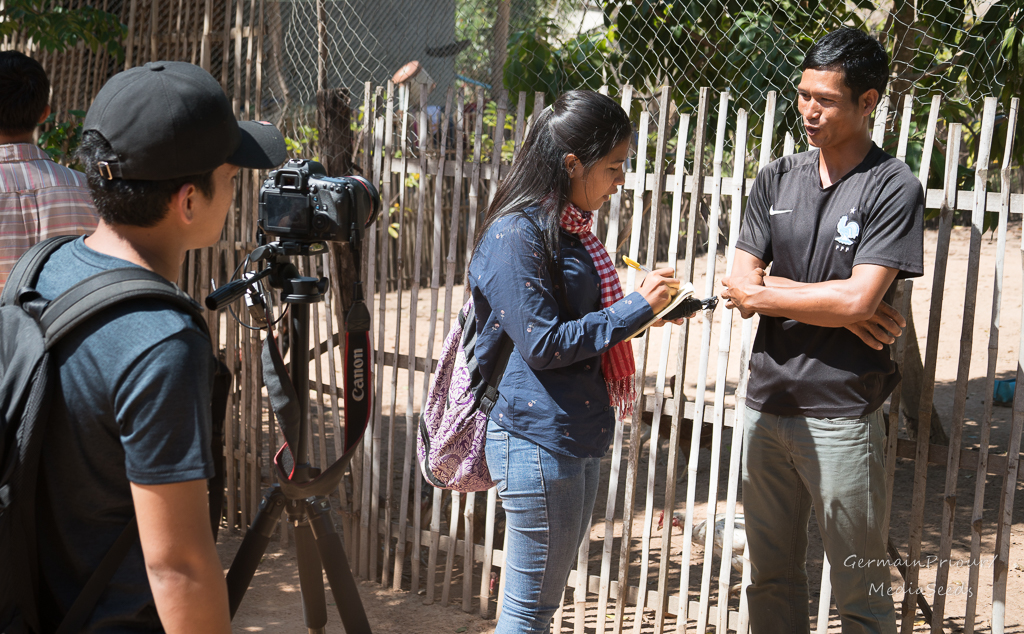Since January, GRET has been implementing a project to improve food & nutritional security and access to social protection (Pasan-Apros) in the Trois Rivières basin in Haiti.
The overall objective of the Pasan-Apros project is to improve the resilience of households and food and nutritional security via an innovative approach featuring three levels: local governance, agricultural development and social protection. Funded by the 11th European Development Fund (EDF), this three and a half year project is being implemented in partnership with the Association of People from Grand Plaine, Protos-Join for Water (in french), the Organisation for integrated development of the North-West (in french) (Odrino) and Action against hunger (ACF).
In terms of geographic focus, four communes in the Trois Rivières basin are concerned by this project: Gros Morne, Bassin Bleu, Chansolme and Port-de-Paix. This is a mainly rural territory, where agriculture is dominant and the population is considered to be in a crisis situation (according to the Integrated Food Security Phase Classification, 2019), and which has been affected by a deteriorated environment.
A three-dimensional approach
In detail, the project has three components:
- Improvement of agricultural development. To do this, the project plans to support several strategic value chains: bananas, sugar cane, cereals, vegetables and fruit. Pasan-Apros also plans to develop and maintain eight irrigation schemes, re-planting protection of soil in the water-sheds, support for strategic agricultural services, support for approximately ten storage and processing systems, and greater consultation between farmers, processors and retailers.
- Development of social protection. The second component is the extension and adaptation of a social protection system that has been tested in Haiti for several years, under the coordination of the Ministry of Social Affairs and Labour. 2,000 vulnerable households will be targeted using an information system based on vulnerability studies conducted by the World Food Programme (WFP) and the National Commission for food security. This will enable households identified as vulnerable to receive food coupons enabling them to procure solely local products in order to reduce the survival threshold deficit and refocus their financial resources on economic activities via village credit unions. The project plans to support 300 credit unions and will also propose vocational training on growth jobs in the area to 150 young people from the households targeted.
- Strengthening of local governance. Lastly, the project’s third dimension concerns strengthening of local authorities (municipalities, communal sections’ boards of administration, etc.) and regional decentralisation of agricultural sector and social affairs institutions regarding aspects relating to planning and monitoring improvement of food and nutritional security.
This strategy seeks to create a virtuous circle. Agricultural development supplies the social protection system with local food products, while the social protection system favours and stimulates the agricultural sector, in a context where local authorities and sectoral institutions are stakeholders in strategic decisions, monitoring and evaluation.
A project driven by sustainable innovative systems
The sustainability of the Pasan-Apros project’s actions is crucial. Especially in a context where development actions often have limited impacts over time, which tends to generate negative perceptions of projects among local stakeholders. To ensure beneficial effects are sustainable, focus is placed on methods for designing and implementing actions.
The project also seeks to facilitate the inclusion of stakeholders and joint design. For example, actions to protect watersheds will be the subject of joint experimental actions in which re-planting methods will be used to contribute to both soil protection and improvement of household economies. The creation and support of agricultural services such as access to inputs or maintenance of agricultural equipment and support for the development of units for storing and processing agricultural products will also be the subject of in-depth work on defining institutional, socio-organisational and economic conditions for their sustainability and development. This will be achieved through close analysis of the stakeholders concerned and their organisational dynamics, as well as through designing organisational diagrams and appropriate, realistic business plans responding to constraints and potentialities together with these stakeholders.
The Pasan-Apros project features a system for monitoring-evaluation, capitalisation and learning, and during the implementation of actions, it will analyse feedback and the initial impacts in order to discuss, validate, adapt and further develop the various hypotheses. The objective is to produce teachings and shared recommendations enabling the pertinence of national food and nutritional security strategies to be improved.



